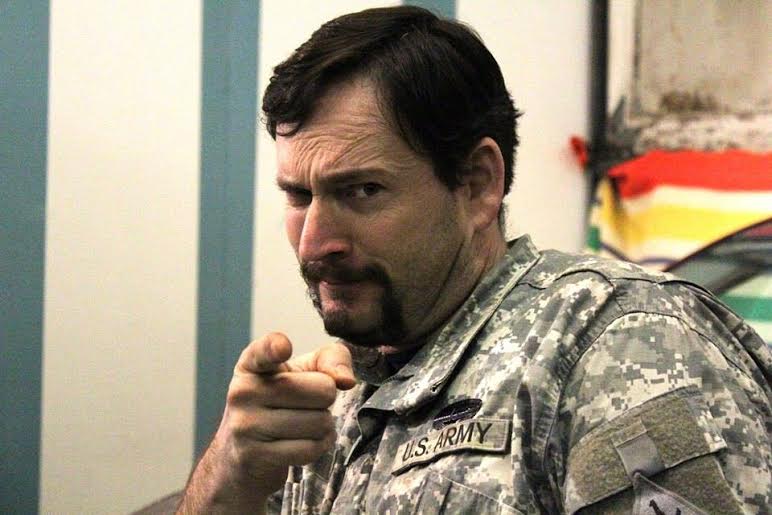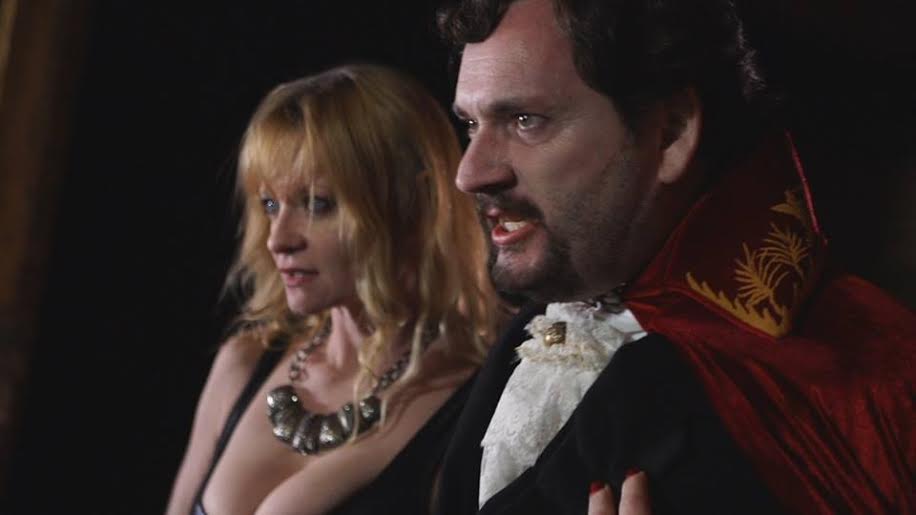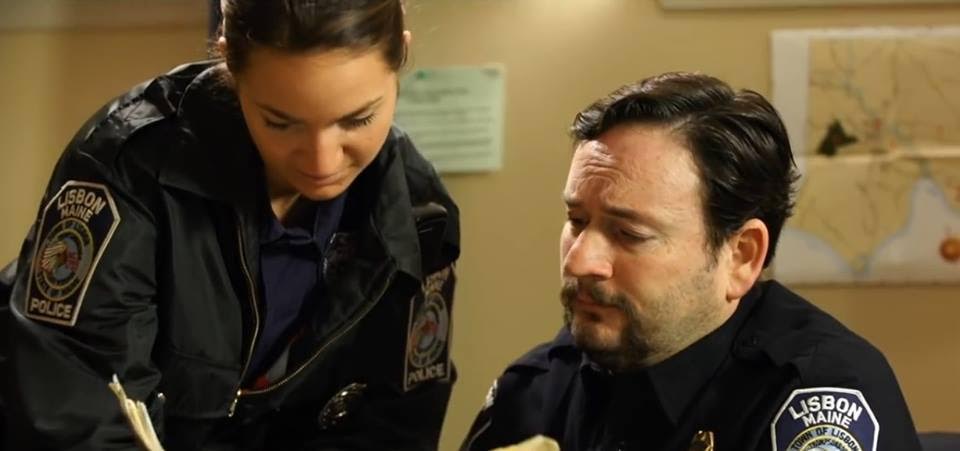Interview by Andrew Bard
AB: How did your journey begin in the film industry?
While working in the missile silos in the Air Force in the middle of nowhere – my friends and I decided to rent one of those new-fangled video cameras and shoot some fun stuff due to the boredom we all suffered. It was either that or drink. A lot. I don’t drink, so we went with the filming. Which turned into filming more stuff, and then into a feature film. The year was 1990.
AB: What would you say your routine/ritual is when first coming up with a story? What’s your early preproduction look like?
Ideas fly at me when I am alone and driving or just thinking. Never really when I’m around others, although I have helped others with their stories as it is easier to jump in and help when someone else has an idea. Once the story is fleshed out, then it’s time to write the script. I usually ask a friend in the business to read the first draft and point out any weak points, etc. After that, I tweak it and then set up a script read-through with as many actors as are willing to come and read. We take notes and listen during the read, and then we sometimes ask the actors what they think is good and bad about the script. Next is the third draft and so on. Once the script is finished, then we move on to set locations, props, wardrobe, etc. The last thing we do is getting the casting panel of 3 or 5 capable people, and then the casting call, call backs, and finalizing the cast. Then the final read through. Then we schedule the shoot, get the film insurance, and pull the trigger.
AB: With the film industry both Hollywood and the independent circuit being so over saturated and recycling like-stories how are you able to stand out from the crowd when coming up with scripts?
I have a wide background in many different film genre studies. I have seen a LOT of films and seen the same stories over and over again. Nothing is new. SO the way I go about it – is to find a new way to tell the stories that have been told before, since the beginning of man. I get a neat idea, and I work ways to attack it from different angles. I grew up loving puzzles and mazes, I actually draw my own mazes and make riddles. I guess i just apply that to storytelling and the next thing you know a script is born with a different angle that hopefully hasn’t been completely overdone. I also look at what is popular and see if I can work those elements in.
AB: You’re a Maine filmmaker, how have you been able to get your name out there living in an area that isn’t typically known for its film industry? Do you find it harder being based in Maine as opposed to the more known and thriving locations like New York, LA, New Orleans, Atlanta and so on?
Being here in Maine, at first, I thought was a curse. Like another brick in the wall. Then I looked at from another angle – this place is mostly unspoiled. It is wide open for the advancement of film making. People here want to be a part of something, so getting locations and catering, and volunteers is relatively easy. You would be amazed at how quickly you can create a film family here in Maine. I have been blessed to work with others that make me look like I know what I’m doing, lol. When I worked on some Hollywood films here in New England, I took notes and paid close attention to how they run their sets. That is how I run mine. Being here in Maine makes it easier to get into newspapers, newscasts, magazines, etc. I have worked hard at that for the last 20+ years, and it is all beginning to pay-off. If we make it to the level where real money is coming in, we hope to spread that to the rest of the budding film community in NE. The more we work together, the more we will all accomplish.
AB: Looking back at the first film you produced and comparing that to your most recent film how would you say you’ve grown as a filmmaker?
We have gone from no money, and trying to figure out what to do before during and after the shoot, to knowing what works best, how to get it, and how to find some funding. The better the plan is drawn up before you shoot, the better the film comes out well and moves along smoothly. There will always be hiccups in the process, but if you have a solid plan and a backup plan, the hiccups don’t pose much of a threat. We are getting tighter with every film shot and finished. My own personal philosophy is that we should always try to improve in every aspect. If you don’t try hard to move forward, you don’t grow.
AB: Which do you prefer, being in front of the camera or behind? Both is also a good answer?
Truth – I love being in front of the camera and interacting with others trying to improve their craft. Being behind the camera came about due to necessity. I embraced it and made it happen, but I built a good solid team of people that make it easier behind the camera. This way – I get to spend more time in front of it. I really just want to entertain you. I love being directed more than being a director.
AB: Your film titled “How To Kill A Zombie” has been gaining serious momentum. Tell me a little bit about that film and how it stands out against other zombie films that re out there.
HTKAZ is a comedy first, and a zombie film second. We concentrated on the comedy and the quality of the zombie practical effects. We tried to put just enough traditional zombie stuff into the film, and worked it into the comedic story that we wrote. People have compared it to “Shawn of the Dead” only more family-friendly. Children age 9 and grandparents up to age 90 have seen the film and laughed. A lot. Our budget was nearly non-existent but we did our best with what we had for production value. I have said “Just imagine what we could do with an actual budget” on many occasions. The fact that this film is gaining so much ground is a testament to what my “Maine (& NE) Film Family” is capable of. It also helped to get a limited theatrical release at 4 Flagship Cinemas locations here in New England. That was a blast and a blessing!
AB: What would you say your most memorable filmmaking experiences have been? Best experience and worst?
Most memorable? Working side by side with Mel Gibson and Ray Winstone for 6 and half days was really, really cool. I learned so much. Working with Blair Underwood was a pleasure – he asked me to show him how to use some martial arts weapons that I was working with for that shoot. Meeting Julia Roberts on the set was incredible. But I would have to say my most memorable film stint was working with my son Ben and so many other professional and capable actors/actresses like Sheri Collins, Hannah Perry, Don Libby and others in HTKAZ and then in “Bad Kid” with Juliana Spier, Deidre Sachs, and Nick Whittemore. Two completely different genres and roles. Worst experience? Well there have been a few in the indie film side of it. I will leave titles and names out so as not to upset anyone, lol. I do remember being taped into a pair of pants, with duct tape rolled up inside to hold the seams together. I have hairy legs. Well, I HAD hairy legs, up until we took the pants off… I have honestly found more positives than negatives on film sets. I try to avoid sets where people allow “drama” on the set, especially if it’s not an actual “drama film”.
AB: Now that “How To Kill A Zombie” is completed and doing well what are your plans for the future? Any new projects coming up?
Thank you for asking, yes sir. We have three feature films coming out in 2016. “Scooter McGruder” (Slapstick Comedy). It won “best feature film” in a pretty large film festival in 2011. Following Scooter will be “Bad Kid” (Dark Drama Thriller). People that know me, and all of my two or three fans, will get a chance to see a completely different side of my acting in this film. We are also expecting the release of “Wendigo Rising” (Horror). I have a very small but fun role in the film, but my son Ben got the lead role so I am very happy for him. He looks good in the spotlight. lastly, a prominent film company in Dublin, Ireland has optioned my script “The Cloning”, and are planning to shoot the film in 2016. They will be flying 5 of us Mainers to Ireland to shoot the film with their cast and crew members making up the remainder. I was very happy to land one of the leads in the film, and my wife Tiffany is 2nd AD. Mike Clements is scheduled to be the Script Supervisor, and Kevin DiBacco is directing with Tim Francis as AD. The estimated minimum budget is $2 million Euros ( $2,200,000+ US). They have already raised a good portion of the minimum budget and more info is coming in monthly. Following that incredibly amazing project we hope to shoot more features here in Maine in the fall of 2016, and through the next few years. Please follow us at www.freighttrainfilms.com to see when casting calls pop up, or find us on Facebook at “Freight Train Films’ facebook page.
AB: What are some personal experiences and advice you would share with anyone interested in pursuing a career in filmmaking?
If you just want to try it out – it’s not the business for you. Many people try it and leave. It takes dedication and drive. Sometimes it takes everything you have AND a whole lot of luck. If you enjoy what you do, then it’s all worth it. I love every single day of it, even the bad ones. Do your homework. Watch and learn. Apply yourself. Take some classes whenever possible. Never. Stop. Learning.
AB: Do you have any final thoughts you would like to add and where can people view your work and watch “How To Kill A Zombie”?
Thank you so much for this interview. Every bit of media attention helps add to the success of all the people involved with making the film(s). You can see the trailer and purchase the DVD or VOD here at Amazon The DVD has hours of Behind the Scenes extras that you don’t get with the VOD download. Keep on watching and doing what you do! See you on the silver screen…



